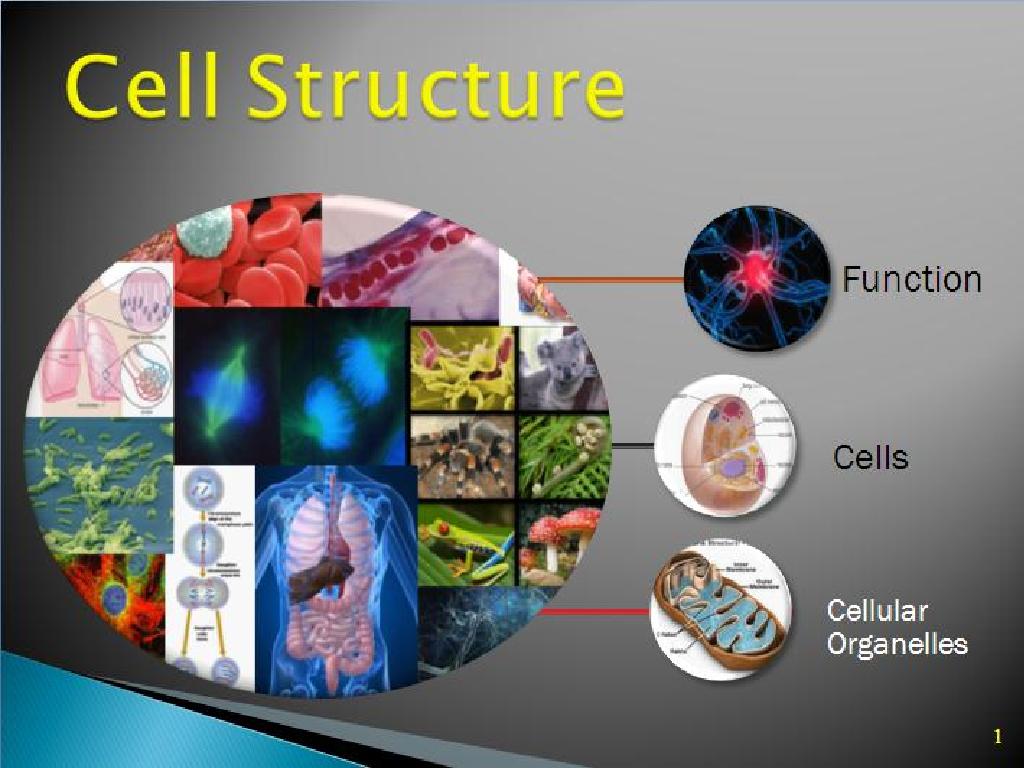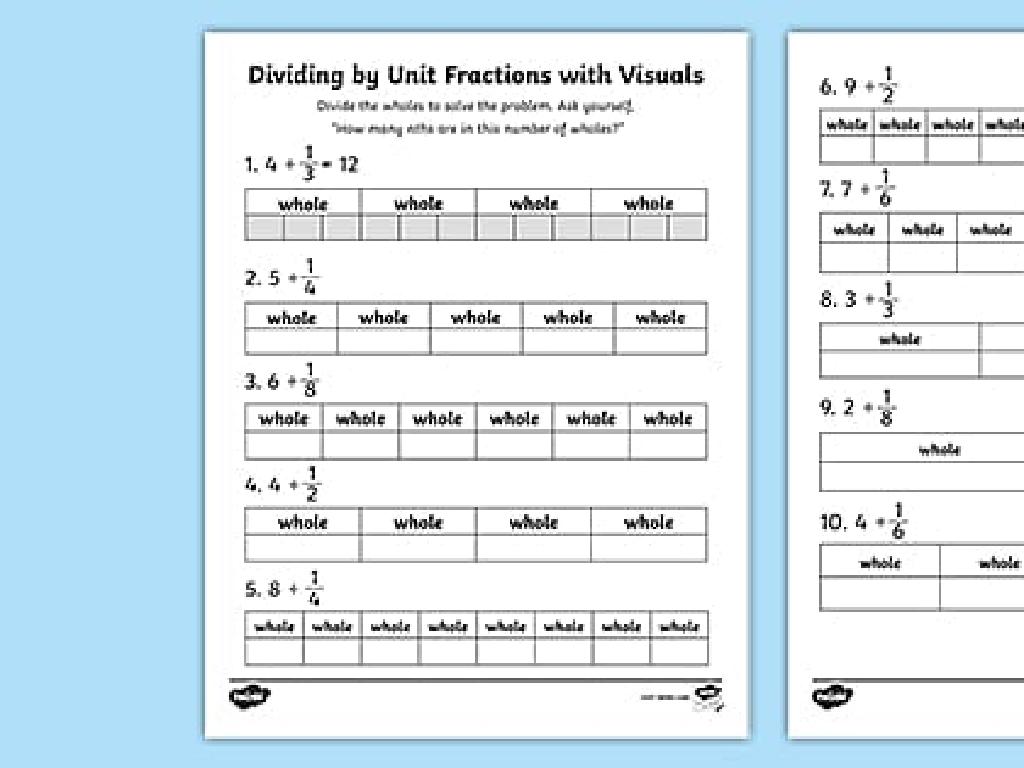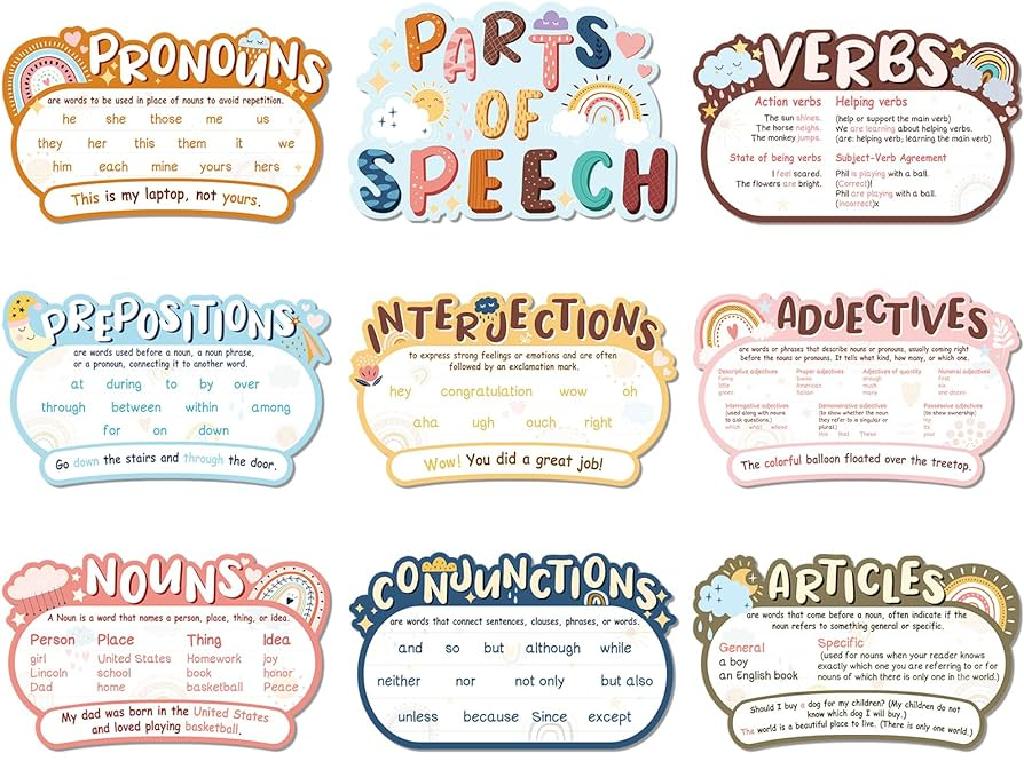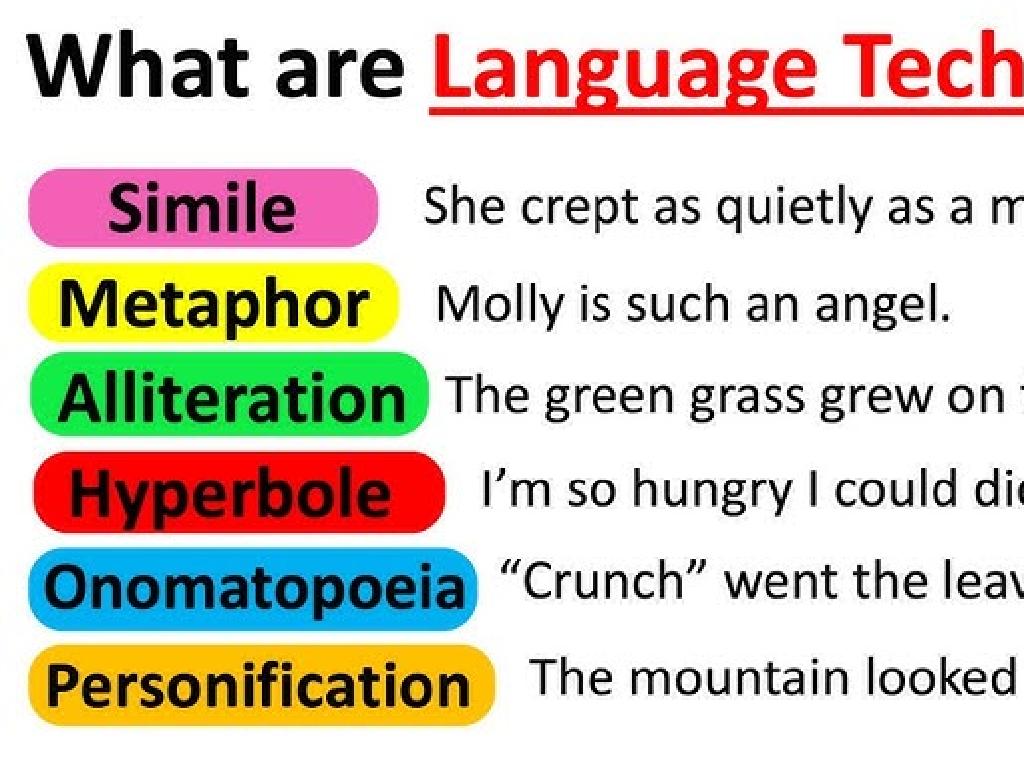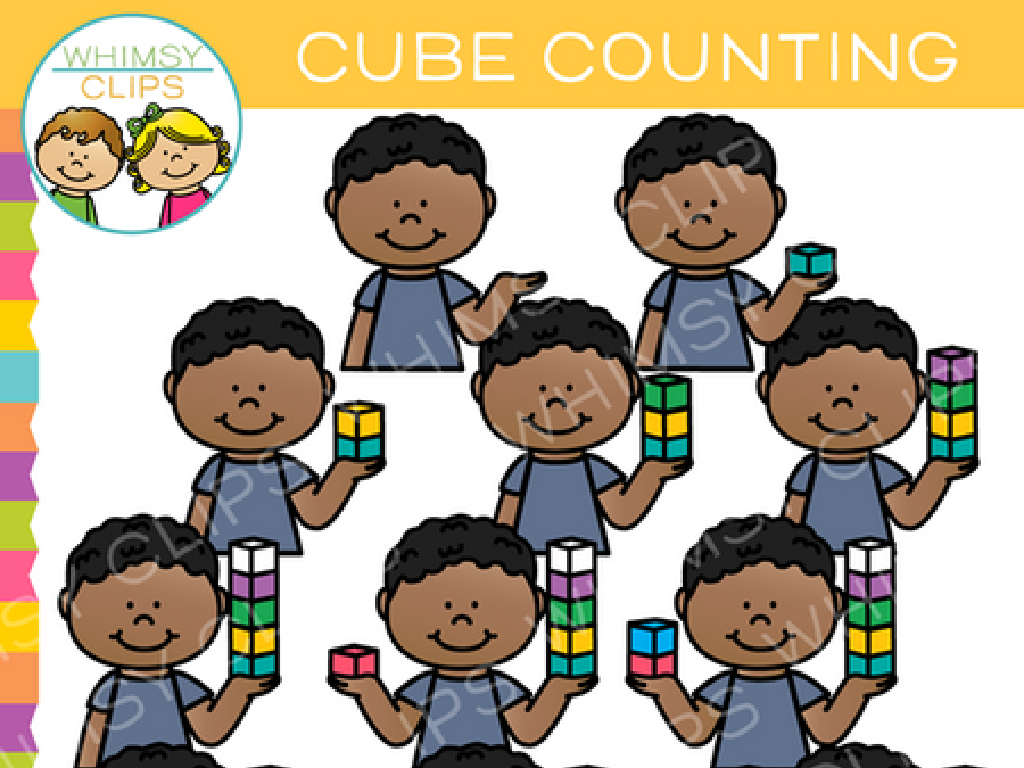Use Context To Identify The Meaning Of A Word
Subject: Language arts
Grade: Third grade
Topic: Context Clues
Please LOG IN to download the presentation. Access is available to registered users only.
View More Content
Becoming Word Detectives with Context Clues
– Discover what context clues are
– Clues in sentences that help guess word meanings
– Learn why context clues matter
– They help us understand new words without a dictionary
– Become a detective in reading
– Use clues to ‘solve’ word meanings like a mystery
– Practice using context clues
– We’ll try finding clues in example sentences together
|
This slide introduces the concept of context clues to third-grade students, framing it as an exciting detective activity. Begin by explaining that context clues are hints found within sentences that can help us figure out the meaning of unfamiliar words. Emphasize the importance of context clues in reading comprehension and vocabulary development. Encourage students to think like detectives, looking for clues in the text to ‘solve’ the meanings of new words. Provide examples and plan interactive activities where students can practice this skill. This will help them become more independent readers and enrich their understanding of the texts they read.
Understanding Context in Sentences
– What does ‘Context’ mean?
– Context is the setting or situation in which a word is used.
– Context: A word’s best friend
– It helps us figure out what words mean without a dictionary.
– Examples using context
– ‘The sun was blazing in the clear sky.’ – ‘blazing’ means very hot.
– Practice finding context clues
|
This slide introduces the concept of context and its importance in understanding the meaning of words. Context refers to the words and sentences that surround a particular word and can give clues to its meaning. It’s like a word’s best friend because it provides hints that help us understand unfamiliar words. Provide examples of sentences where context clues are used to deduce the meaning of a word. Encourage students to think of context as a helpful tool in reading comprehension. In the next class, we will practice finding context clues in different texts to become better at figuring out the meanings of new words.
Types of Context Clues
– Definition clues in sentences
– The new word is explained right there in the text.
– Synonyms as context clues
– Words with similar meanings give hints.
– Antonyms help define words
– Opposite words can offer strong hints.
– Inference clues for guessing
– Use sentence hints to make an educated guess.
|
This slide introduces students to the different types of context clues that authors provide to help readers understand the meaning of new words. Definition clues involve the word being explained within the sentence itself, making it straightforward for the reader. Synonym clues use similar words to give hints about the new word’s meaning. Antonym clues use contrast, providing an opposite word to clarify the meaning. Inference clues require the reader to pick up on hints and make an educated guess about the word’s meaning. Encourage students to look for these clues in sentences and practice with examples. This will help them become more independent readers who can deduce the meaning of unfamiliar words without a dictionary.
Using Context Clues: Be a Word Detective
– Become a detective for words
– Use context clues to figure out new words, just like solving a mystery.
– Read around the mystery word
– If a word is confusing, the sentences before and after can help!
– Spot the signal words
– Words like ‘such as’, ‘means’, ‘for example’ give hints.
– Use clues to solve word meanings
|
In this slide, we’re equipping students with strategies to uncover the meaning of unfamiliar words using context clues. Encourage them to think like detectives, looking for hints within the text. Explain that reading the sentences before and after an unknown word can provide valuable information. Highlight signal words that often introduce context clues, such as ‘including’, ‘like’, ‘for instance’, and ‘means’. These words can signal an explanation or example that helps define the word. Have students practice with sample sentences and identify the context clues that help define the challenging words. This will prepare them for more independent reading and enhance their vocabulary skills.
Practice Time: Context Clue Detectives
– Practice using context clues
– Read sentences as a group
– Use detective skills to find meanings
– Think like a detective: What hints do the words around the mystery word give us?
– Discuss our findings together
– Share what clues helped you and listen to others’ discoveries
|
This slide is designed for an interactive group activity to practice using context clues to determine the meaning of new words. Start by explaining that context clues are hints in the text that help us figure out the meaning of words we don’t know. Encourage the students to read the sentences aloud together and then pause to discuss the unfamiliar words. Guide them to look for words or phrases around the unknown word that might give a hint about its meaning. Ask questions like ‘What words are related to the unknown word?’ and ‘What is happening in the sentence?’ After discussing, have the students share the clues they found and how they figured out the word’s meaning. This activity will help students become more independent readers and improve their vocabulary skills.
Context Clues: Who is the Arborist?
– Read the sentence carefully
– Understand every word in the sentence
– Find clues around ‘arborist’
– Words like ‘decided’ and ‘branches’ are clues
– Discuss clues as a class
– Share thoughts on what an arborist might do
– Reveal the meaning together
– Use our clues to figure out an arborist’s job
|
This slide is designed to engage the class in a discussion about the meaning of the word ‘arborist’ using context clues from the sentence provided. Encourage the students to look at the words surrounding ‘arborist’ and think about what actions are being described. Guide them to understand that ‘decided’ implies choice and ‘branches’ and ‘trim’ are related to trees. This will help them deduce that an arborist is someone who works with trees. After the discussion, confirm their deduction by revealing that an arborist is a tree specialist who cares for trees by trimming, planting, diagnosing diseases, and sometimes removing them.
Group Activity: Context Clue Hunt
– Form small groups for the activity
– Choose favorite books to explore
– Find context clues for new words
– Look for words you don’t know and use the sentences around them to understand
– Prepare to present your discoveries
– Share how the clues helped you guess the word meanings
|
This group activity is designed to encourage collaboration among students as they use context clues to determine the meaning of new words. Divide the class into small groups and allow each group to select a book they enjoy. Instruct them to look for unfamiliar words and use the surrounding text to infer the meanings. Each group should note down their words, the sentences they found them in, and the clues that helped them understand the word. After the activity, each group will present their findings, explaining how they used context to decode the words. This will help reinforce the concept of context clues and improve vocabulary skills. For the teacher: Prepare a list of books suitable for third graders, guide the students in forming groups, and facilitate the presentations, ensuring each group gets a chance to share.
Class Activity: Create Your Own Clues
– Pick a word and write a clue sentence
– Trade papers with a classmate
– Guess the word your partner chose
– Discuss the clues that helped you
– Talk about what hints in the sentence made the word’s meaning clear
|
This interactive class activity is designed to help students understand the use of context clues in sentences. Students will first select a word and then write a sentence that provides clues to the word’s meaning without revealing the word itself. After writing their sentences, students will exchange papers with a classmate and attempt to guess the word based on the provided context clues. Once everyone has guessed, the class will come together to discuss the different types of clues used and how they helped to understand the word. This activity encourages critical thinking and enhances vocabulary skills. For the teacher: Prepare a list of words appropriate for third graders that can be used for this activity. Monitor the class as they work on their sentences and provide assistance as needed. After the activity, lead a discussion that allows students to share their experiences and what they learned about context clues.
Conclusion & Reflection: The Power of Context Clues
– Why context clues are helpful
– They help us understand new words without a dictionary.
– Using context clues in reading
– Remember to look at the words around a tricky word.
– Share a new learning from today
|
As we wrap up today’s lesson, emphasize the importance of context clues in understanding new vocabulary. Context clues are valuable because they allow students to become independent readers who can deduce the meaning of unfamiliar words from the surrounding text. Encourage students to always look for words or sentences around a new word that can give hints about its meaning. Ask them to reflect on how they will apply this strategy in their future reading. Finally, have each student share one thing they’ve learned about context clues to reinforce their understanding and to celebrate their progress.

